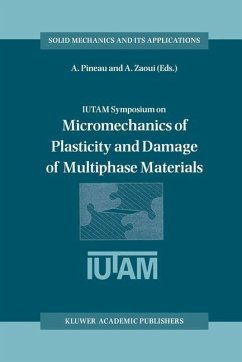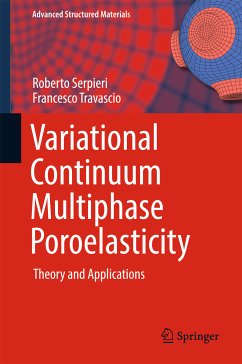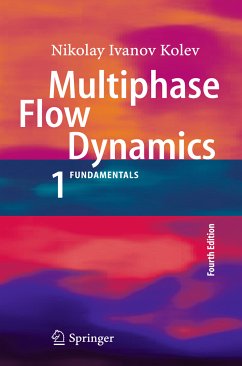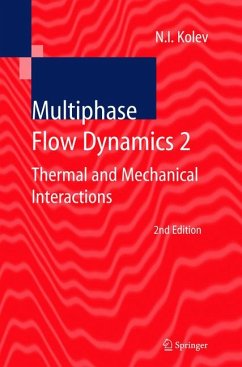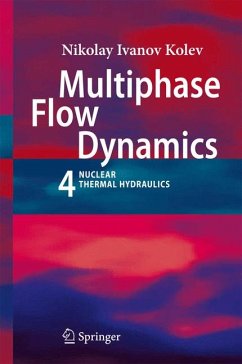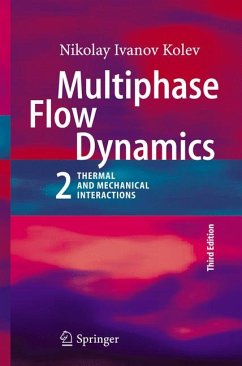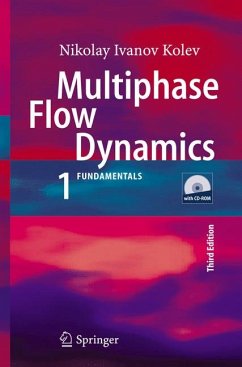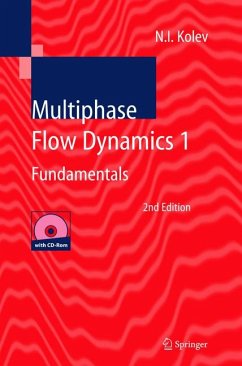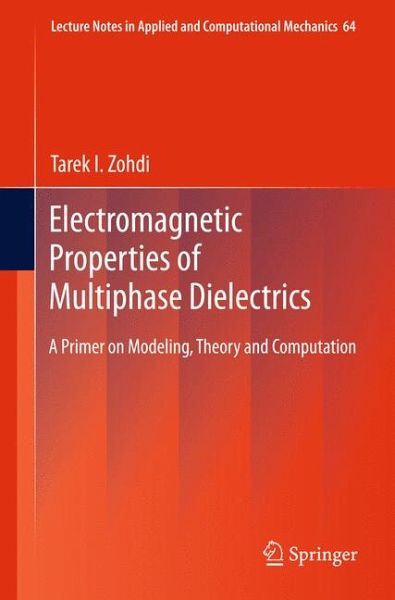
Electromagnetic Properties of Multiphase Dielectrics (eBook, PDF)
A Primer on Modeling, Theory and Computation
Versandkostenfrei!
Sofort per Download lieferbar
72,95 €
inkl. MwSt.
Weitere Ausgaben:

PAYBACK Punkte
36 °P sammeln!
Recently, several applications, primarily driven by microtechnology, have emerged where the use of materials with tailored electromagnetic (dielectric) properties are necessary for a successful overall design. The ``tailored'' aggregate properties are achieved by combining an easily moldable base matrix with particles having dielectric properties that are chosen to deliver (desired) effective properties. In many cases, the analysis of such materials requires the simulation of the macroscopic and microscopic electromagnetic response, as well as its resulting coupled thermal response, which can ...
Recently, several applications, primarily driven by microtechnology, have emerged where the use of materials with tailored electromagnetic (dielectric) properties are necessary for a successful overall design. The ``tailored'' aggregate properties are achieved by combining an easily moldable base matrix with particles having dielectric properties that are chosen to deliver (desired) effective properties. In many cases, the analysis of such materials requires the simulation of the macroscopic and microscopic electromagnetic response, as well as its resulting coupled thermal response, which can be important to determine possible failures in ``hot spots.'' This necessitates a stress analysis. Furthermore, because, oftentimes, such processes initiate degratory chemical processes, it can be necessary to also include models for these processes as well. A central objective of this work is to provide basic models and numerical solution strategies to analyze the coupled response of such materials by direct simulation using standard laptop/desktop equipment. Accordingly, this monograph covers:
(1) The foundations of Maxwell's equations,
(2) Basic homogenization theory,
(3) Coupled systems (electromagnetic, thermal, mechanical and chemical),
(4) Numerical methods and
(5) An introduction to select biological problems.
The text can be viewed as a research monograph suitable for use in an upper-division undergraduate or first year graduate course geared towards students in the applied sciences, mechanics and mathematics that have an interest in the analysis of particulate materials.
(1) The foundations of Maxwell's equations,
(2) Basic homogenization theory,
(3) Coupled systems (electromagnetic, thermal, mechanical and chemical),
(4) Numerical methods and
(5) An introduction to select biological problems.
The text can be viewed as a research monograph suitable for use in an upper-division undergraduate or first year graduate course geared towards students in the applied sciences, mechanics and mathematics that have an interest in the analysis of particulate materials.
Dieser Download kann aus rechtlichen Gründen nur mit Rechnungsadresse in A, B, BG, CY, CZ, D, DK, EW, E, FIN, F, GR, HR, H, IRL, I, LT, L, LR, M, NL, PL, P, R, S, SLO, SK ausgeliefert werden.




